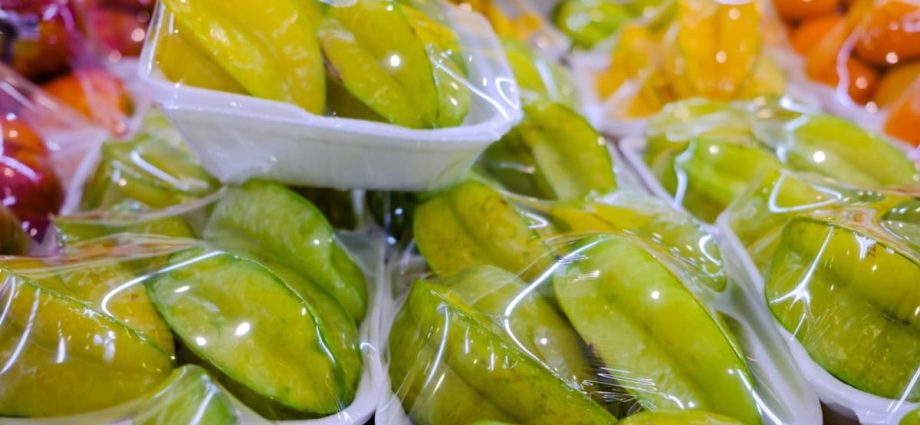
This meant wrapping bunches of herbs in dampened kitchen towels and stowing them in airtight storage containers, for example. Good storage habits such as these are just as relevant in the space of a home, keeping produce fresh for longer while simultaneously reducing our reliance on plastic packaging.
PLASTIC-FREE ALTERNATIVES AROUND THE WORLD
As supermarkets worldwide grapple with their culpability in climate change, a variety of solutions have emerged. Thai, Vietnamese and Filipino supermarkets have begun using banana leaves to wrap vegetables, a practice that is not uncommon at traditional markets in these countries.
While creative, the banana leaves only serve to bundle up produce – they do not provide the same airtight protection for meat, seafood, vegetables, and fruit as plastic does. Also, banana leaves as packaging might pose problems for those suffering from latex allergies.
Zero waste stores are abundant in the Netherlands, where I live. Large dispensers house everything from nuts to rice, and consumers are encouraged to bring their own bags, jars, or containers. While bulk has a buy-only-what-you-need appeal, it requires a whole overhauling of the grab-and-go supermarket experience.
Cross-contamination also poses another challenge. UnPackt, the first zero waste store to open in Singapore, has reported customers not respecting the hygiene required to keep the packaging-free foods fresh. Because of this, to supermarkets, bulk remains a liability that outstrips its environmental virtues.
NO STRAIGHTFORWARD SOLUTIONS
It is clear that there isn’t a magic bullet that eradicates plastic in supermarkets. A carrot-and-stick approach, where Singaporeans are rewarded for positive climate action or given disincentives as negative reinforcement, however, does not truly reach the heart of the matter.

